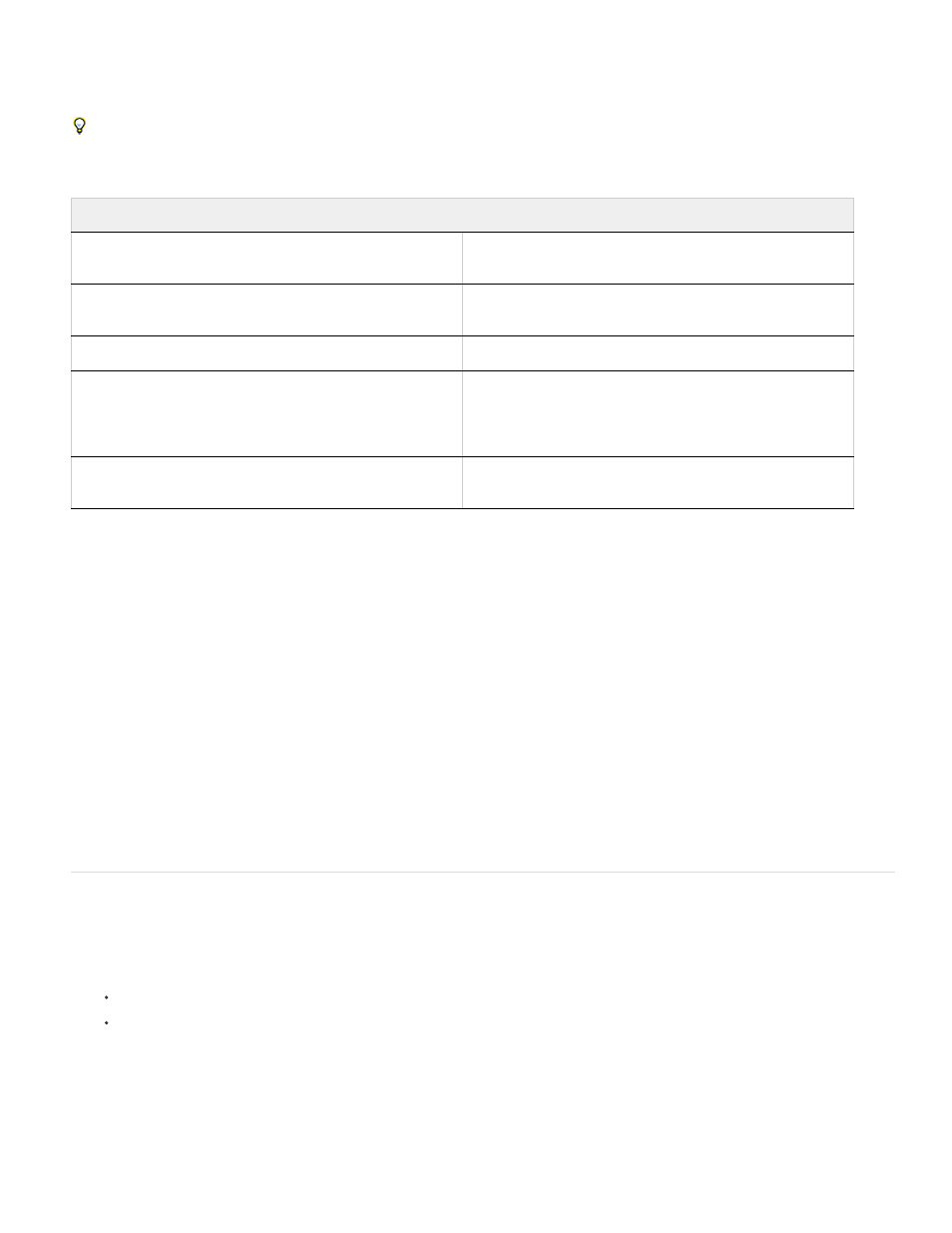Import a data set – Adobe Photoshop CC 2014 v.14.xx User Manual
Page 907

Note:
Use First Column For Data Set Names
All the variable names are listed on the first line, in the order that the values are given in subsequent lines. Each subsequent line represents one
data set, with the values for each variable given.
To create multiple lines of text in a single line of text in a data set, enclose the text in double quotes and insert hard returns in the tab- or
comma-separated file where you want the breaks to occur.
If
All variables defined in the PSD document must be defined in the text file. An error is displayed if the number of variables in the text file does
not match the number in the document.
Example data set:
Using a template for flowers that holds variables for tulip and sunflower, you can set up a text file that looks like this:
{contents of FlowerShow.txt}
Variable 1, Variable 2, Variable 3
true, TULIP, c:\My Documents\tulip.jpg
false, SUNFLOWER, c:\My Documents\sunflower.jpg
false, CALLA LILY, c:\My Documents\calla.jpg
true, VIOLET, c:\My Documents\violet.jpg
You can use a relative path for the image location if the text file is in the same folder as the image file. For example, the last item in the
example can be: true, VIOLET, violet.jpg.
Import a data set
1. Do one of the following:
Choose File > Import > Variable Data Sets.
Choose Image > Variables > Data Sets and click the Import button.
2. Navigate to the text file to import.
3. Set up your import options.
Names each data set using the content of the first column of the text file (the values for the first
External text file syntax elements
Either a comma-separated (CSV) or a tab (tab-delimited) file
that separates each variable name or value.
A newline character that ends each data set and can be a
line feed, carriage return, or both.
“true” and “false”
Allowed values for a visibility variable.
Spaces
Spaces around the delimiter are removed when parsing the
file; between words in a value string (e.g., two of a kind)
spaces are maintained and leading and trailing spaces are
maintained if enclosed in double quotes (e.g., “one kind ”).
Double quotes
Can be part of a value if preceded by another double quote
(e.g., ““B”” would be “B” in the data set).
900
